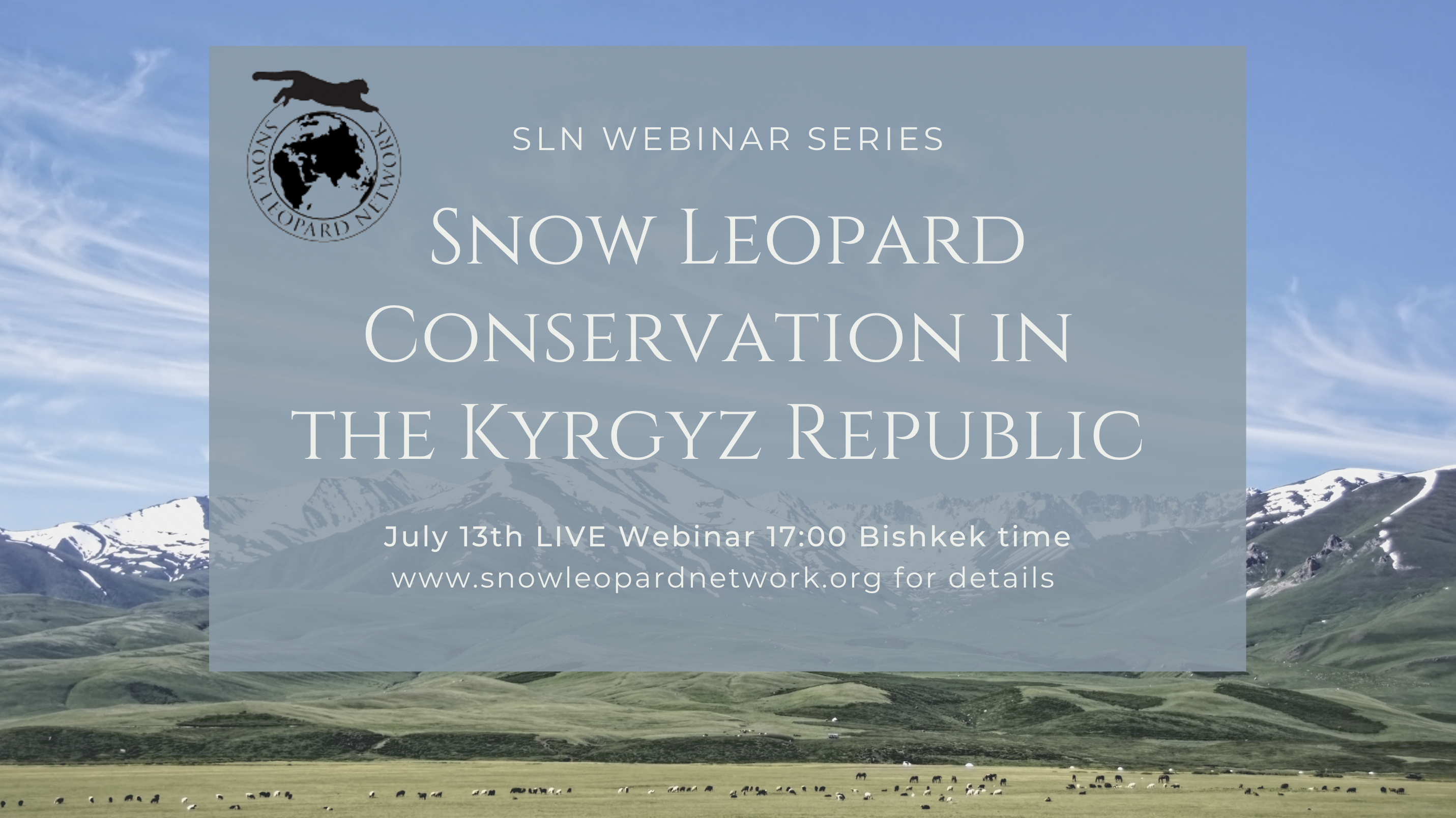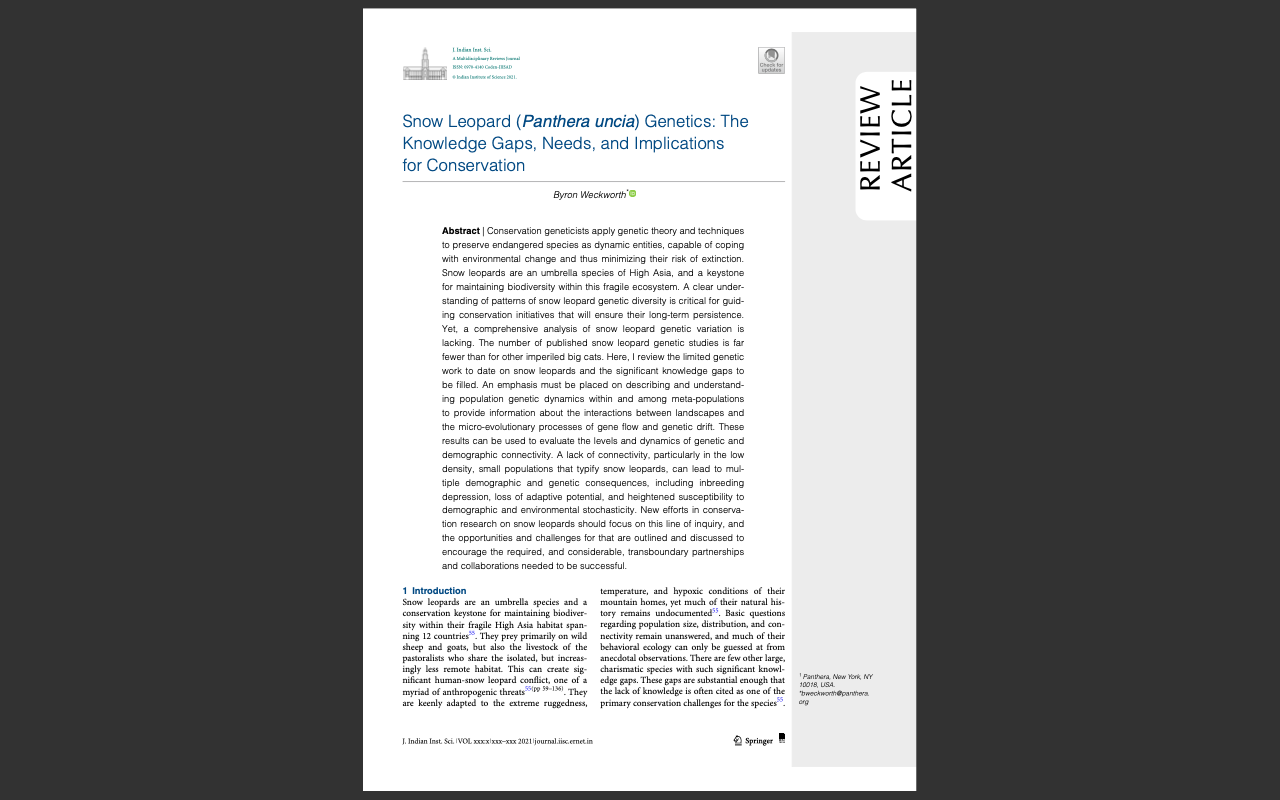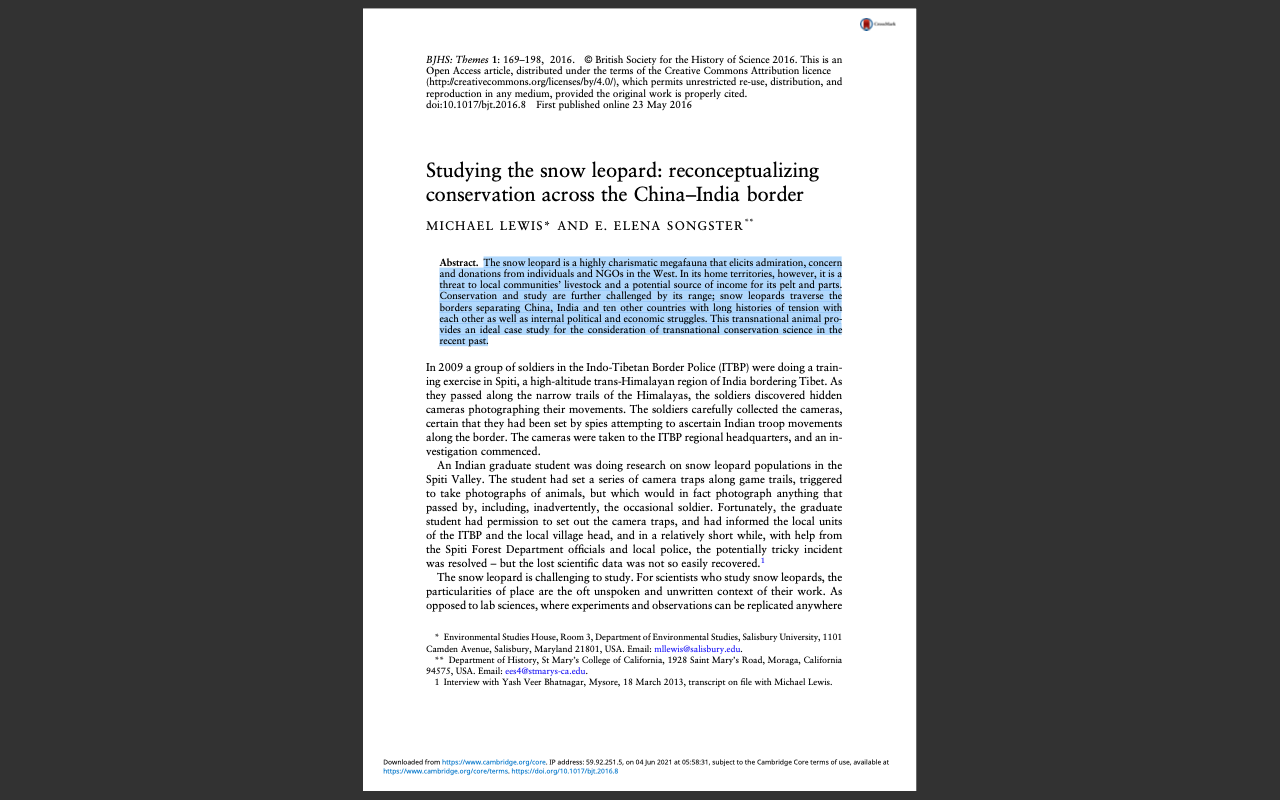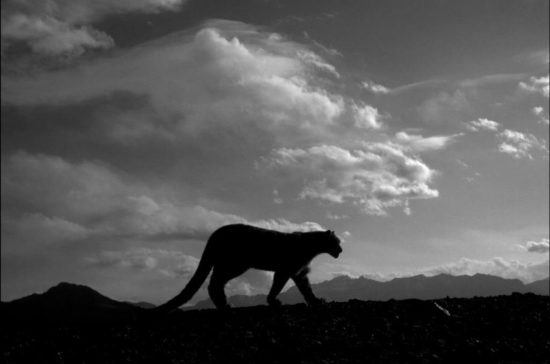
Session 1: Introduction to R and Statistics
All statistical endeavours start with data. In this session, you will learn how to import your data into the R environment. This will be the perfect opportunity for you to become familiar with the R language, as well as with its basic commands. You will learn about data types most ...

SLN Webinar: Snow Leopard Conservation in the Kyrgyz Republic
The Snow Leopard Network is pleased to invite you to the next episode in the Country Update Series. This webinar will focus on Kyrgyz Republic and the work of the Ilbirs Foundation in tackling some of the most pressing and challenging threats the species face. The Kyrgyz Republic continues to ...

Snow Leopard NEWS announced in Mandarin
We thank Snow Leopard Network China for sharing this initiative for teams across China. (Link to original Post) 国际雪豹网络 (SLN) 是一个全球性组织,致力于促进世界各地之间关于雪豹保护的信息和见解交流,并力求“联动向上”,提升雪豹保护的影响力。 秉承着这样的理念,SLN怀着激动的心情向大家宣布《雪豹新闻》Snow Leopard NEWs(SL NEWS)这一开源年报(annual open-access newsletter)的成立。 Snow Leopard NEWS(SL NEWS)是国际雪豹网络 (SLN) 的开源时讯年刊,是SLN指导委员会2021-2023年的优先事项,旨在促进全网雪豹保护者及研究人员间的交流。SL NEWS希望通过野外笔记和研究成果来收集整理和呈现有关雪豹生物学和保护的最新信息,包括雪豹的种群状态和栖息地的变化。欢迎各位以野外笔记、研究成果和保护前线手记的形式投稿。编辑团队将通过同行评议机制来定刊。 使命 分享雪豹生态学与保护的最新资讯。包括雪豹、它的猎物和雪豹栖息地共生的其他食肉动物。我们也寻求应对雪豹栖息地威胁的创新保护实践和政策。 另外,还会着重展示雪豹栖息地国家保护工作者和科研人员的的工作开展情况,并支持他们分享保护工作及科研成果。 编辑团队编辑团队由SLN指导委员会成员和受邀的SLN成员组成。主编:Orjan Johansson博士,三位副主编:肖凌云博士、Justine Shanti Alexander博士和Munib Khanyari。SLN指导委员会主席Sandro Lovari博士担任名誉编辑。 现已成立了由SLN指导委员会和其他成员组成的编辑委员会。其主要职责是为审阅和评议过程提供全面的指导和支持。编委会希望能吸引世界各雪豹栖息地的投稿。 投稿指南SL NEWS发表与保护雪豹和雪豹分布范围内的共生物种有关的原创性科研成果、野外观察笔记和保护时讯。编辑团队将评审稿件,按需进行同行评议和稿件的接收。SL NEWS每年发布一次,但文章预览会提前在线发布。我们将在期刊中标出经过同行评议的笔记或文章。同时,SL NEWS也在申请ISSN注册。 投稿类别在SL NEWS上发表的文章分为以下几类: ...

Session 2: R Studio and Hypothesis Testing
In this session, we explore in more details the fundamentals of statistical theory. Using built-in datasets in R, you will learn how to identify methods that are most appropriate depending on the data you are working with, as well as essential principles of hypothesis testing. Presentation PDF to download R ...

New Article to the Bibliography
Please see details below, of a new article added to our Bibliography: Title: Snow Leopard (Panthera uncia) Genetics: The Knowledge Gaps, Needs, and Implications for Conservation Author: Weckworth, B. Abstract: Conservation geneticists apply genetic theory and techniques to preserve endangered species as dynamic entities, capable of coping with environmental change ...

Session 3: Fundamentals III
Using what we learned in the previous two sessions, we will work through all essential steps involved in data analysis, with a focus on linear regression. This includes the formulation of a hypothesis, data preparation and visualisation, statistical testing, and finally, results interpretation. We will complete two full practical exercises ...

New Article to the Bibliography
There is an interesting article written in the British Journal for the History of Science on the development of snow leopard science and conservation in India and China. This is a part of a special issue on science in India and China (2016). Title: Studying the snow leopard: reconceptualizing conservation ...

Session 4: Regressions, Correlations and more
This session will start with presentation of results from the last analysis (see Session 3). The rest of the session will be dedicated to identifying and avoiding common mistakes in data analysis. This will allow us to also discuss issues related to results interpretation, which is essential in the field ...

Announcing ‘Snow Leopard NEWS’!
The Snow Leopard Network (SLN) is a worldwide network dedicated to facilitating the exchange of information and insights around snow leopards. It strives to “link up to scale up” efforts and thereby enhance the impact of snow leopard conservation investments. Very much in this ethos, SLN is excited to announce ...

Over 100 Years of Snow Leopard Research
The presenters – Rishi Sharma and Rashmi Singh – have undertaken a review of all published research on snow leopards between 1904 and 2020. The goal was to examine the current state of knowledge across the snow leopard range while identifying spatial and temporal gaps. The findings are striking – ...
